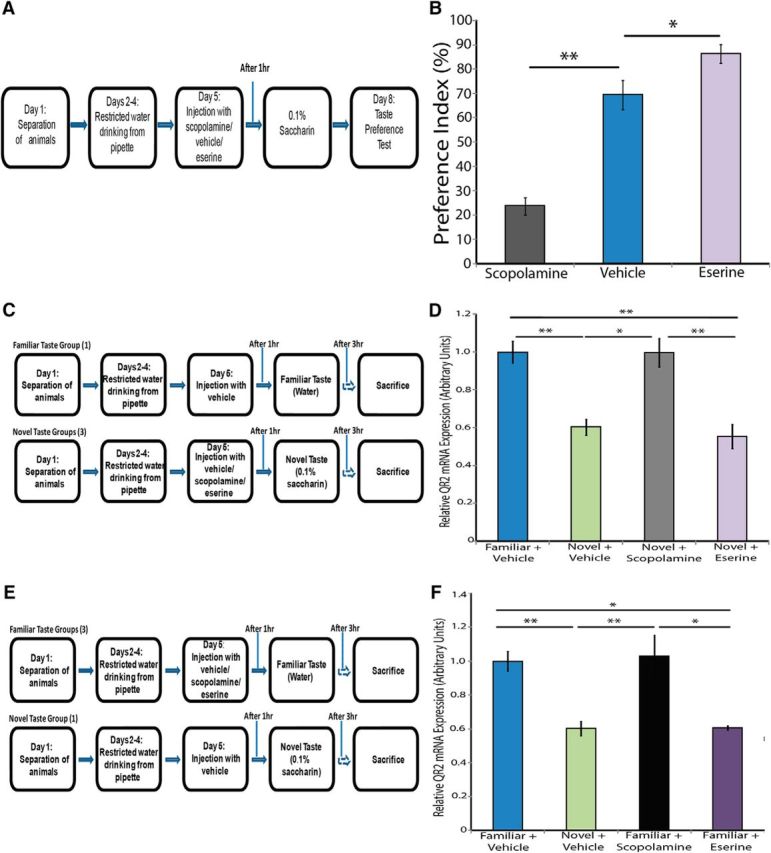Figure 5.

QR2 mRNA expression is mediated by mAChR activity. A, Schematic representation of the experiment. Rats were injected with scopolamine, eserine, or vehicle before being exposed to a novel taste (saccharin). The animals were then subjected to a taste preference test to assess learning performance. B, Blockade of the mAChR during novel taste learning prevents novel taste memory formation, as can be seen from the significantly lower PI in the group injected with scopolamine compared with the control group. Furthermore, increased mAChR activation during novel taste learning leads to enhanced learning of the novel taste, as can be seen from the higher PI in the group injected with eserine compared with the control group (control, n = 8; scopolamine, n = 8; eserine, n = 7). C, Experimental design to determine the effect of preventing mAChR activation on QR2 mRNA expression in the IC after novel taste learning D, Injection with mAChR antagonist scopolamine (2 mg/kg, i.p.) before exposure to novel taste abolishes the decrease in QR2 mRNA. Administration of mAChR agonist eserine (1 mg/kg, i.p.) before exposure to novel taste does not lead to further decrease in QR2 mRNA levels (vehicle familiar, n = 21; vehicle novel, n = 12; scopolamine novel, n = 6; eserine novel, n = 6). E, Experimental design to determine the effect of pharmacologically induced activation of mAChR on QR2 mRNA expression in the IC. F, The novel taste-induced decrease in QR2 mRNA expression in the insular cortex can be achieved even in the absence of the novel taste in animals injected with eserine. However, administration of scopolamine to animals given a familiar taste does not result in increased QR2 mRNA levels compared with baseline (vehicle familiar, n = 21; vehicle novel, n = 12; scopolamine familiar, n = 8; eserine familiar, n = 7).
